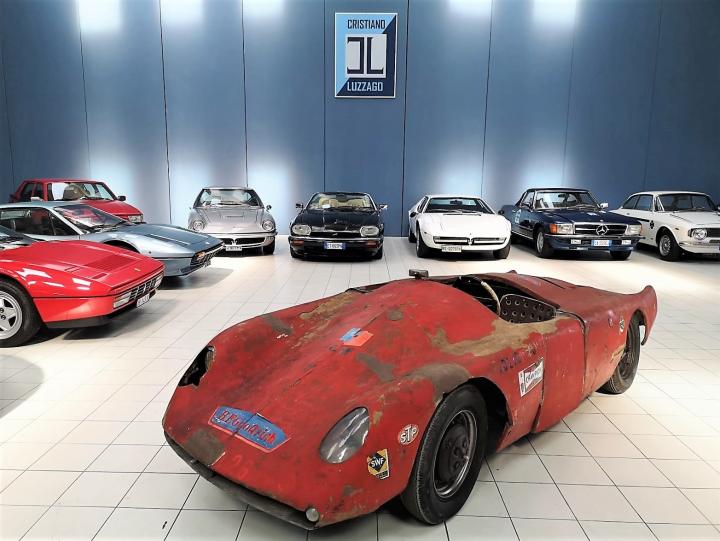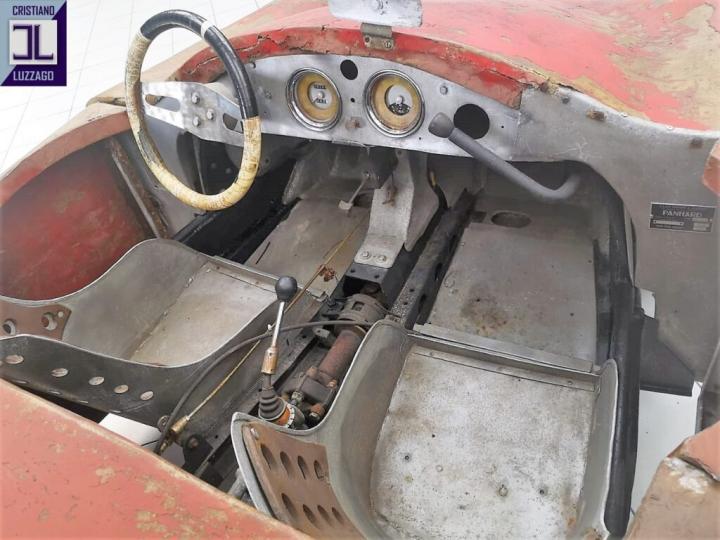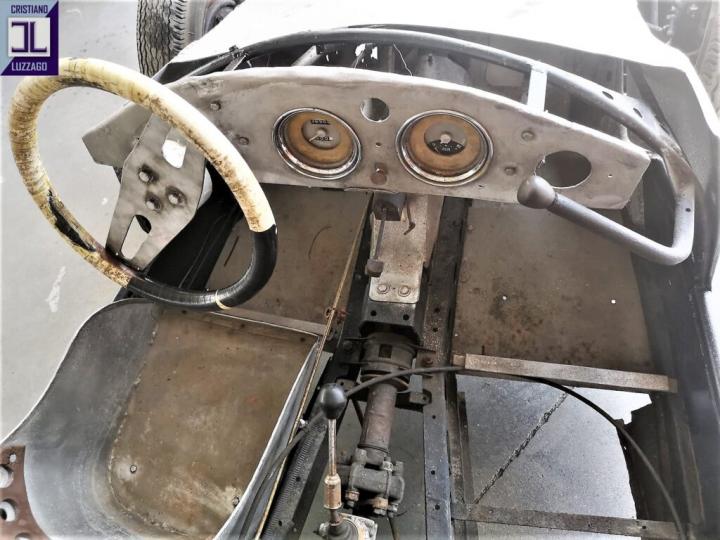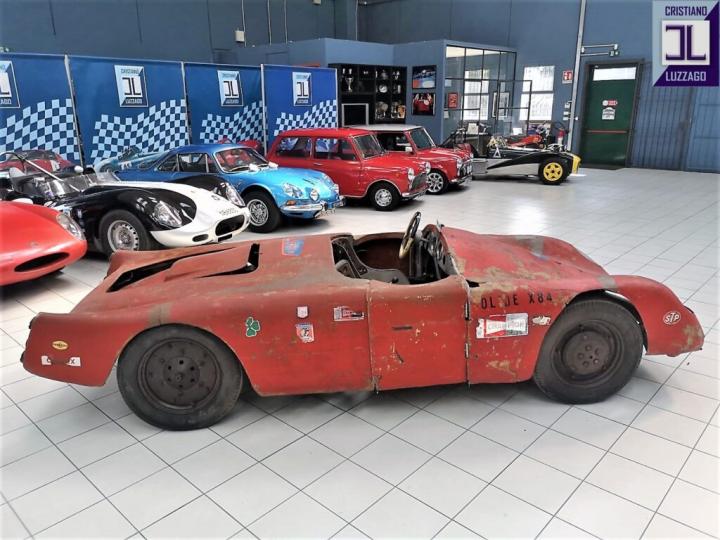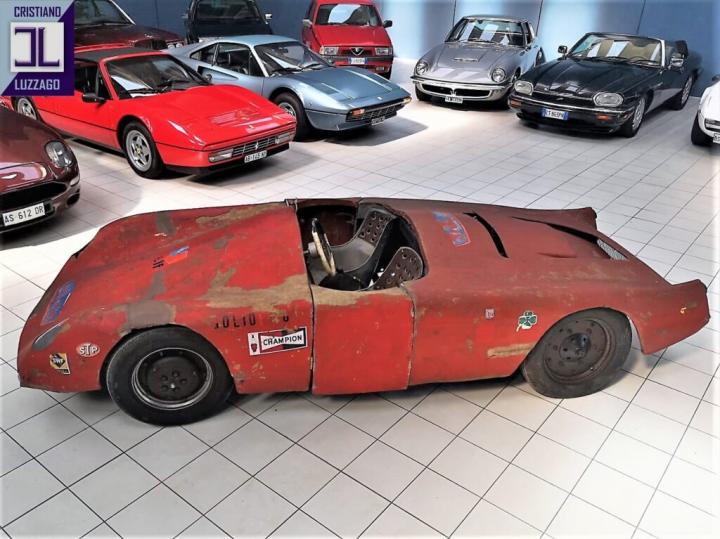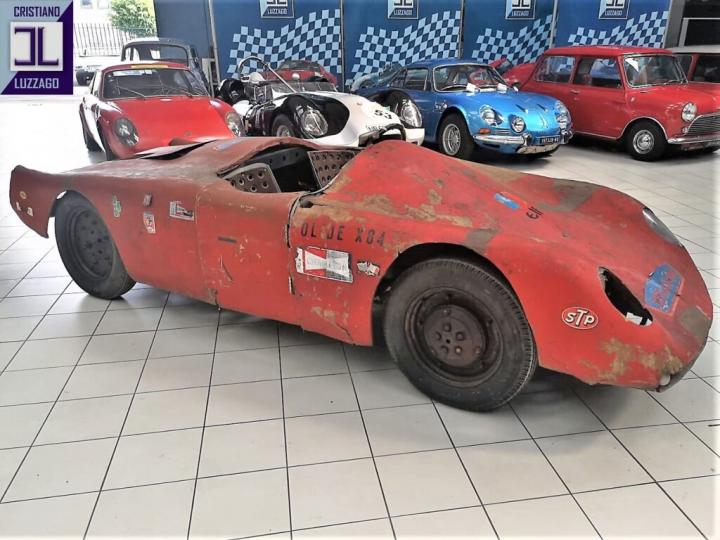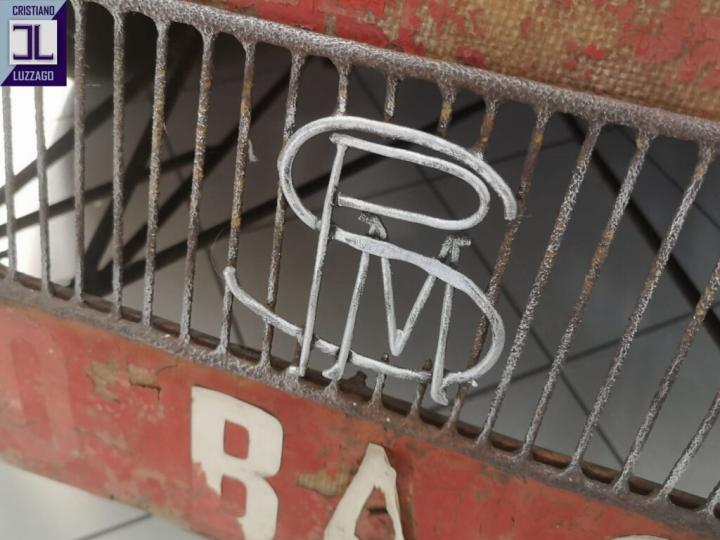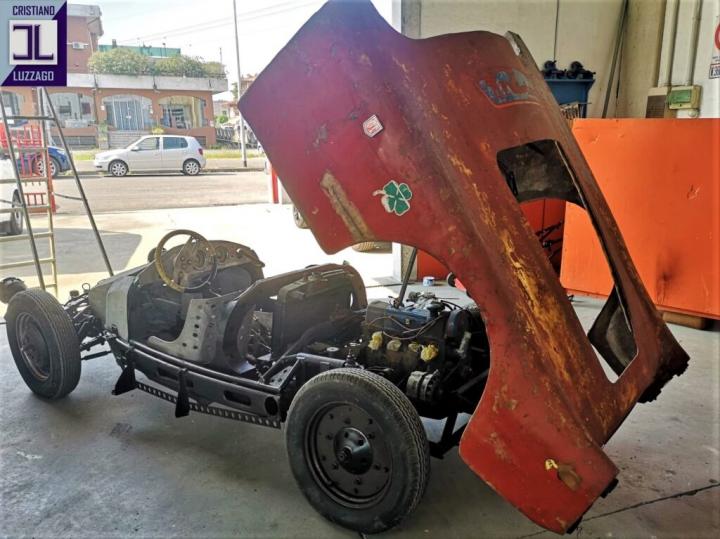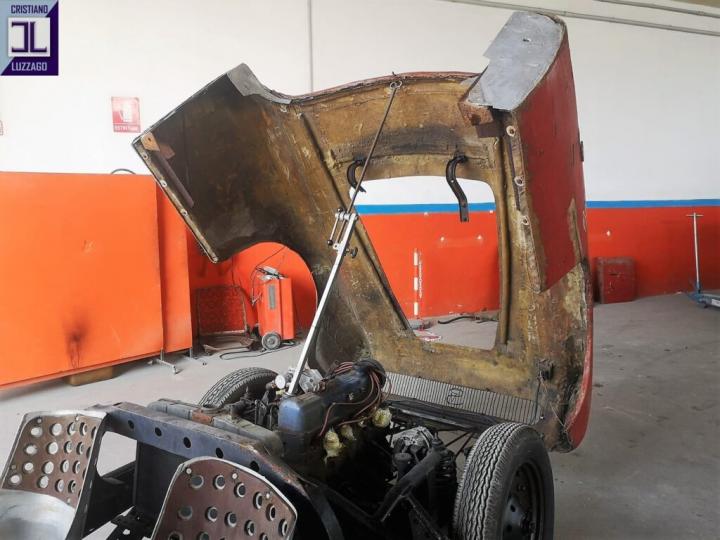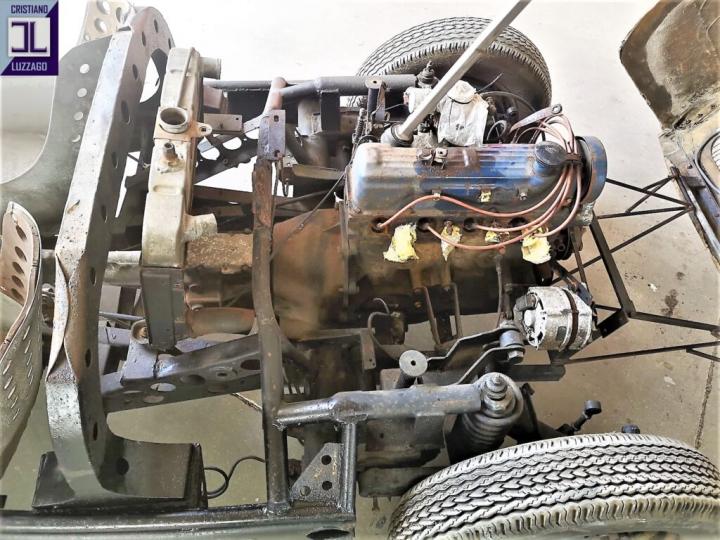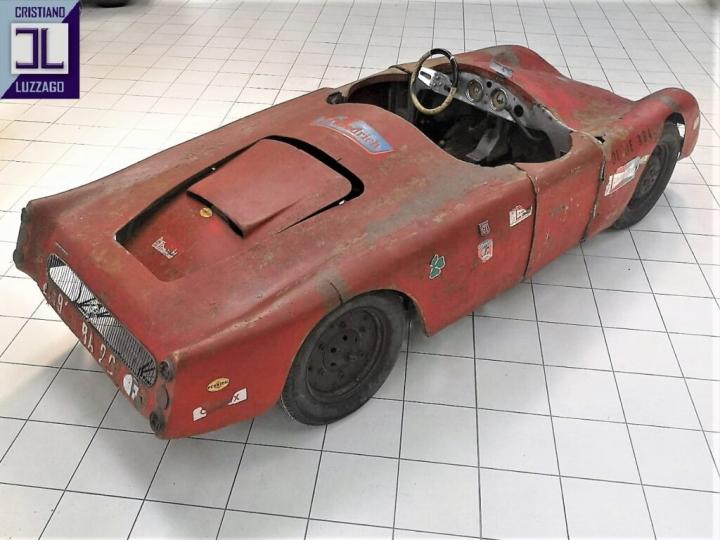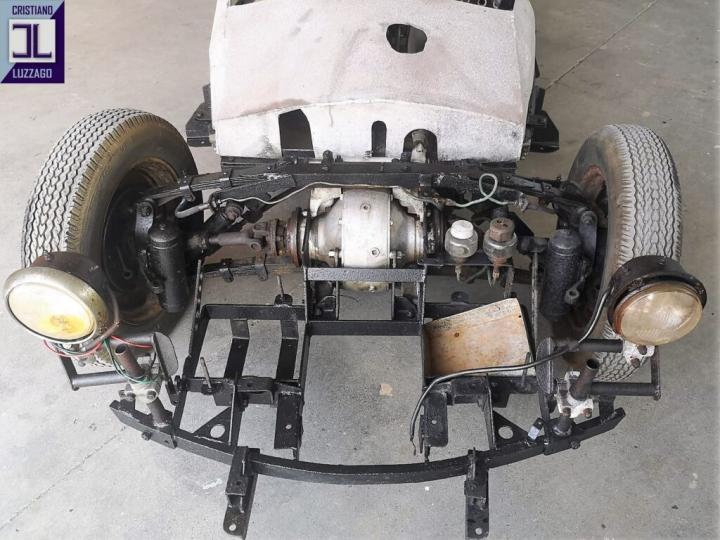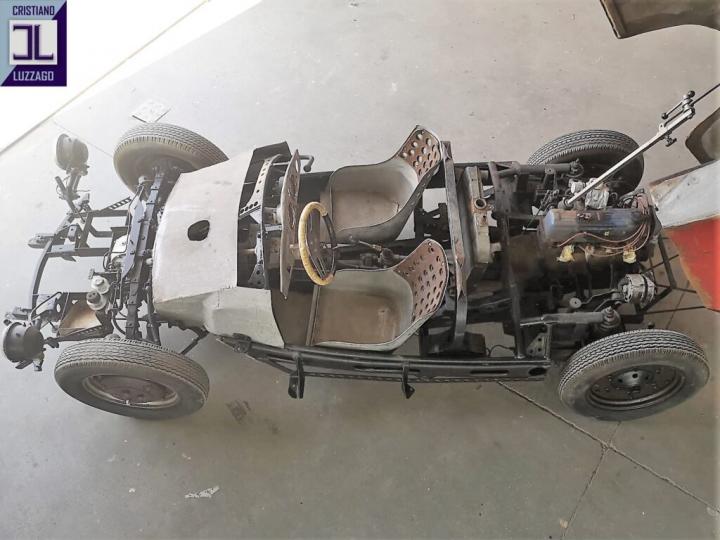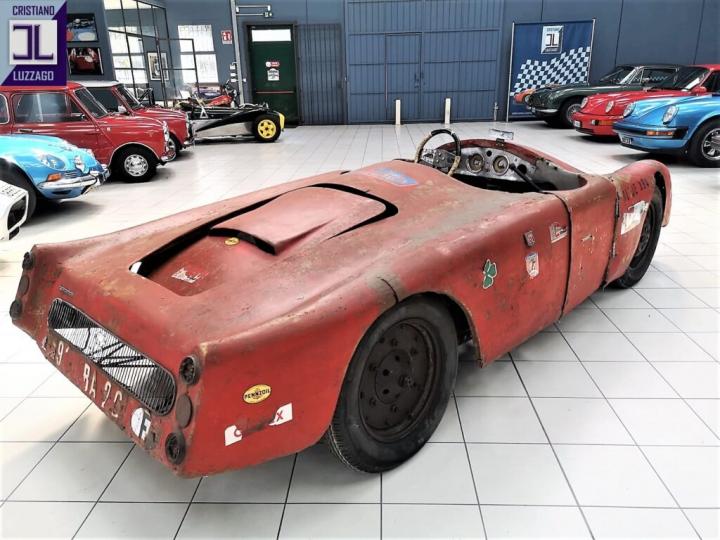1959 Panhard Panhard Paul Menissier Special
€ 33800

|
carrozzeria
|
Formula Car
|

|
trasmissione
|
Manual
|

|
colore esterno
|
Red
|

|
tappezzeria
|
Other
|

|
sterzo
|
Lhd
|
1959 PAUL MENISSIER PANHARD SPECIAL
Registered for the first time in France on 12 January 1950 with the registration number 6040AT3, on 30 May 1959 it was transformed into a Barchetta with the n. 63-59-26.
Always remained in France until 18 October 2013 when it was purchased by an Italian collector.
A racing car with a revolutionary technical design.
This very original racing boat is a survivor of a very active and creative period for motor racing. The producer is Paul Ménissier, a pilot who was based in Drôme (South of France).
Paul Ménissier was a Citroën agent and racing driver.
He designed and built this PMS-Panhard based on a bold concept: by combining mid-engine and front-wheel drive, the car combines the ideal balance of weight with the directional power of front-wheel drive.
An Alfa Romeo twin cam engine was used to power the prototype.
Now, the car is equipped with a Ford inline 4-cylinder.
Powered by the Alfa-Romeo engine, it was used by Paul Ménissier himself, among other events, on the famous Course de Côte du Pin.
The most original feature of the car is its mid-engine/front-wheel drive structure, unique in history on a racing car.
The chassis is a modified Panhard Dyna X, fitted with a more advanced rear suspension including coil springs.
The front wheel train receives power from a propeller shaft that runs through the passenger compartment.
Well aware of the enormous road-holding advantages of front-wheel drive, Ménissier decided to put the engine’s weight centrally for perfect balance, while retaining the front-wheel-drive handling qualities of the Dyna-X.
Mid-engine technology was really new at that time (PMS was built in 1958-59, while Ferrari switched from front-engined to rear-engined sports cars only in 1963…!).
Coupled with front-wheel drive, PMS is truly revolutionary, even by today’s standards.
Furthermore, the body was designed following advanced aerodynamic designs, strictly derived from the Porsche racing spiders.
The bodywork was eventually further refined with a longer front end (probably designed to generate more downward force), as well as rear “fins” not far removed from contemporary late-generation cars.
The Ménissier raced the “Course de Côte du Pin” hillclimb twice, first in 1960 or 61, then in 1962 – see photo below with still experimental bodywork…replaced with the one we know today, probably looking for cargo aerodynamic up front.
The press article above was communicated by Charly Rampal, a well-known Panhard expert (Dynamic-Club Panhard) and his friend Gérard Trémouilhac (former member of the GRAC Team).
Thanks to them and also to Marcel, a friend of Ménissier, who helped identify the car.
Ménissier was a talented driver who entered the Monte-Carlo Rally with a Citroën DS.
Source Auto History:
An historical point of view about the Paul Ménisser Special.
The P.M.S. Panhard / Alfa Romeo is actually the one and only racing car with rear mid-engine and front-wheel drive in History.
This automobile has obviously a particular importance for those who have a specific interest in Technology and History of car racing.
Many front-wheel drive cars have been successful in competition (Miller, Citroën DS, Austin Cooper, to name but a few).
Instead of accepting the “inevitable” understeering of front-wheel drive cars, Ménissier broke the rules and tied to improve the balance by bringing the engine to the rear.
This had probably two major consequences : reducing the weight and traction power on the front wheels, and improving the general balance of the car in curves.
It is difficult to estimate the overall result of the pluses and minuses of this totally new racing car structure, unless the car is put on a track.
At the “Course de Cote (hillclimb) du Pin” 1961 the PMS finshed at an honourable 64th positon overall, and sixth in its Class. This car is actually the same as the one for sale, but with a different bodywork, as indicated by the registration plate, and confirmed by eye-witnesses.
The same year, the GT Class was won by a Ferrari 250 GT “Passo Corto” (short wheel base). This means that the performance of the PMS “Menissier Special” was far from ridiculous, and it has probably been improved by the eventual fitting of a twin-cam Alfa-Romeo engine in place of the Panhard.
Restoration of such a “barchetta” is not expensive, mostly manpower, considering the very low cost of mechanical parts, and the absence of any upholstery, windows, and other comfort features, making the number of parts to be restored very limited.
Once brought back to life, this unique car with exceptional History could be the pride of a collector or enthusiast, either for historic racing and/or for private enjoyment and race track days
